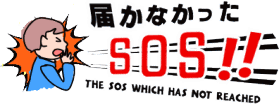|
|

HOME>Tour to learn>The current state of Japan>Cause of the poverty of the
child>Increase in single-parent
■■I explain "the increase in one pro-household" that is one of
the causes of the poverty of the child here.
|
|
|
|
 |
The lower graph expressed an annual change of the number of divorces.
|
【Number of divorces of annual change - 1950 - 2008 -】

Source: quoted a graph of the overview of demographic statistics special
report 2009 fiscal year, "statistics on divorce" (Ministry of
Health, Labour and Welfare)
(http://www.mhlw.go.jp/toukei/saikin/hw/jinkou/tokusyu/rikon10/01.html)
|
The income of the household decreases by becoming a one parent by a divorce.
In the case of a family of mother and child in particular, the regular
employment (regular staff) of the woman is difficult and, comes to often
work for low wage because it is limited again in the working hours.
↑TOP |
| 【Mother-to-child household-father household number (estimate) (nationwide
from mother-to-child households, etc. survey)】 |
 |
|
|
|
|
The number of the mother and child households 1,238,000 households, the
number of the father and son households having become 223,000 households
in 2011.
Most one occupies approximately 80% of the reason why it was by "a
divorce" in the mother and child household as a reason to become the
one pro-household. |
|
|
|
|
|
|
 |
|
|
 |
|
|
Source: created by processing the graph of "the challenges of support
measures the current state of the single-parent home" (Ministry of
Health, Labour and Welfare)
(http://www.mhlw.go.jp/stf/shingi/2r985200000336oi-att/2r985200000338ck.pdf) |
【By age, household types by relative poverty rate (2007)】 |
 |
| Source: quoted a graph of the "Gender Equality White Paper (summary
version) 2010 Edition" (Gender Equality Bureau of the Cabinet Office)
"FIG. 24 age group, household type another relative poverty rate (2007)"(http://www.gender.go.jp/whitepaper/h22/gaiyou/html/honpen/b1_s05.html) |
Both the work generation and a child are that the relative poverty ratio
of the mother and child household is higher than 50%.
|
↑TOP
|
 |
Of course all mother and child households are not in poverty state. It
varies by each family.
However, it is the situation of present Japan that the poverty ratio of
the mother and child household is higher than 50%, and feel that more than
80% are hard in Japan.
Then, why is poverty not known as a big problem though there are many people
feeling that I am hard?
|
 |
| --hard to show the poverty of the child- |
|
 |
| ● We do not know from appearance |
|
| Clothes and wearing, it is difficult to know whether the child is from
a conversation between friends are faced with poverty. |
| ●Awareness that "it poverty to be hide." |
|
| Many children will not say to others that your own home is that it is poor. |
| ● It is difficult to gather information |
|
| From the point of view of personal information protection, it is difficult
to obtain a home information of children at school. |
| ● Advance in some areas "divided" |
|
In some areas, only poor households and rich households gathered in the
same school district, the layer is "divided" in income, missing
the opportunity to meet the people of the other layers.
|
|
 |
|
|
|
|
|
When support was not demanded from the government so that a place to stay
was not known to the husband who received DV, I heard it, and a chest ached.
|
|
 |
|
|
|
|
|
 |
The corpse of two mother and child was detected in an apartment of Osaka
in 2013.
The room does not have the food, and it is said that the electricity and
the gas of the room were turned off.It was considered that two people died
in about February, and the memo of the contents of the purpose "to
be sorry not to be fed a lot" was left. |
|
|
 |
|
|
|
|
 |
|
I want you to make everybody not to make any misunderstanding!
A ratio of mother and child household is only 7.6% (※ note), and, among
the households which are on welfare, most of single mothers are not on
welfare!Most of child household of mothers do their best and work! |
|
|
|
|
|
|
|
※A note: The data are things of 2011 Ministry of Health, Labour and Welfare
"fact-finding about the welfare" (August, 2014 publication).
The ratio of welfare recipient is 42.6% of elderly person households, obstacle
disabled household 32.8%, mother and child household 7.6%, 17.0% of other
households.
|
|
| ↑TOP |
| NEXT→ |
|


